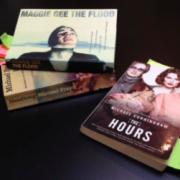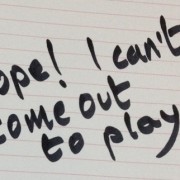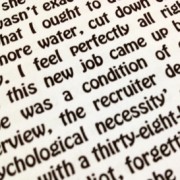Rethinking Em-Dashes and Other Punctuation Malarky
Six pages into my manuscript, for the final (absolutely final) read-through before e-publication, I decided to check whether em-dashes require character spaces.
Here’s the two lines of dialogue that prompted this check:
‘You were worried. I wasn’t —’
‘I over-reacted. I didn’t mean it.’
but maybe it should be this:
‘You were worried. I wasn’t—’
‘I over-reacted. I didn’t mean it.’
Turns out, the latter is correct i.e. there is no character space before an em-dash.
For the uninitiated, an em-dash is a particularly long hyphen and it indicates that dialogue is interrupted. (Just for the record, there are 26 em-dashes in my manuscript).
My error with the em-dash caused me to pause, and review other issues around punctuation. I decided to face the fact: I’d fallen into my old journalism ways – peppering hyphens, of the mid-length en-dash type, throughout my prose.
So I abandoned my ‘absolutely final’ read-through and initiated a full-manuscript punctuation review (sigh) focusing on:
• • • Deleting the character spaces before my em-dashes, in a simple find-and-replace operation.
• • • Replacing a rash of en-dashes (one of these – not one of these — nor these -) with a comma, full stop or semi-colon, or rewriting the sentence, if need be. (Having said that . . . I started reading China Miéville’s The City & The City and I noted he is a fan of en-dashes, too).
• • • Re-checking my use of ellipses ( . . .) which indicate that dialogue is trailing off.
• • • Re-checking all occurences of semi-colons; I love them but not everyone does.
and I’m sure there was something else . . .
This has been a very lengthy operation despite the fact that I’d been pretty careful with my punctuation throughout!
Nevertheless, it seems that punctuation is not an exact science. Take an arm-full of novels from your shelves and you’ll see that the rules of punctuation are applied very differently from one book to another, even among books from the same publishing house. Punctuation has, moreover, proved a powerful tool in establishing the form of an individual novel – from the stream-of-consciousness modernist writing of, say, Virginia Woolf to the pared-back style of, say, Cormac McCarthy’s The Road or Ali Smith’s recent There But For The.
The goals are really two-fold: to respect the rules without being slavish and to achieve consistency within each novel; inconsistent punctuation will annoy the reader. As a trained journalist and one-time sub-editor, I thought I’d be operating on safe ground but even with this latest punctuation check I’ve noticed I’ve taken a tougher stance on semi-colons in the earlier chapters than in the later ones (now, if I told my friends that they’d wonder about my mental state). Anyway, I’ll rectify that lack of consistency, I hope, when I key in the hard-copy corrections.







Trackbacks & Pingbacks
[…] Rethinking Em-Dashes and Other Punctuation Malarky […]
Leave a Reply
Want to join the discussion?Feel free to contribute!